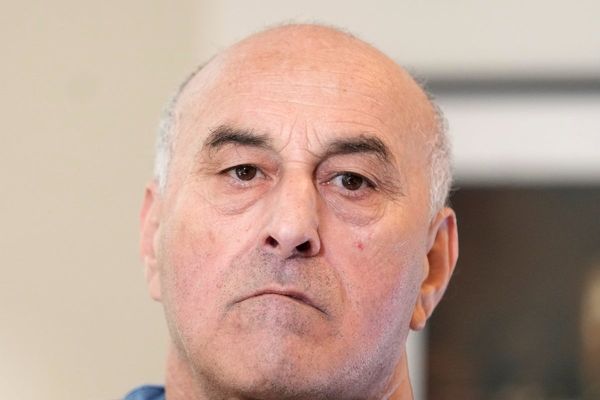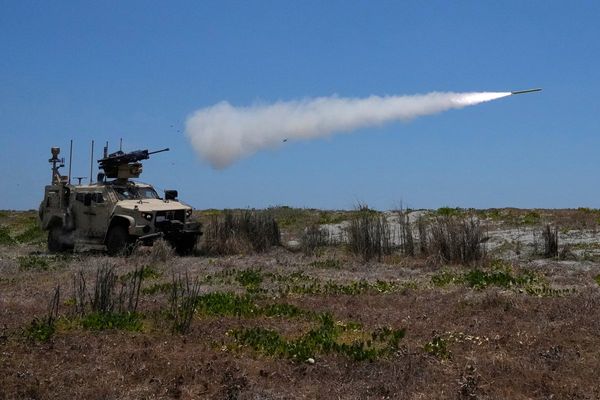
Populists, nationalists and demagogues of the far right and left are challenging a peaceful and united Europe like never before, Ursula von der Leyen has declared, as she was endorsed as the sole candidate of the EU’s leading political group, the centre-right European People’s party, to head the the European Commission for another five years.
“They want to trample on our values, and they want to destroy our Europe. And we, the EPP, will never let that happen,” she said at the EPP conference in the Romanian capital, Bucharest.
Von der Leyen won overwhelming but not unanimous backing for her candidacy for a second term as the president of the EU’s executive body, with 400 delegates supporting her and 89 voting against. The backing comes before an EU-wide parliamentary election in June that will lead to the appointment of a new slate of top officials – including the head of the powerful Brussels-based Commission.
If approved by leaders of the EU’s 27 member countries, she will have another term charting the bloc’s policies on matters ranging from big tech and state aid to screening Chinese investments and sanctions against Russia.
She vowed to advance EU economies, clamp down on the smugglers driving irregular immigration to the bloc and strengthen competitiveness, as well as supporting farmers as costs of living rise.
Von der Leyen also promised more financial and military aid to Ukraine. “Prosperity, security, democracy – this is what people care about in these difficult times,” she said. “In times of change, Europe has your back.”
Also in Bucharest was the recently elected Polish prime minister, Donald Tusk, who warned that Europe’s postwar era of “blissful calm” had gone. “We are living in new times, in a prewar epoch,” he said.
Von der Leyen invoked her father’s memories of the devastation in the second world war to warn delegates that Europe once again stood at a critical and dangerous juncture in history.
She recalled how he used to tell her and her six siblings as they grew up in Belgium that “Europe is so precious” and that his children’s generation “have to take care of it because it’s all we have”.
“Today, I am the one telling the same story to our seven children,” she said.
In an oblique reference to the Holocaust, von der Leyen told the audience how her father, who was 15 when the war ended, had grown up “surrounded by lawlessness, devastation” and “had witnessed what it means if we allow hatred against minorities”.
Europe again is in turmoil and “the world is as dangerous as it has been for generations”, with “friends” of the Russian president, Vladimir Putin, trying to undermine democracy, she said. “They are spreading hate from behind their keyboards. Let there be no doubt what’s at stake in this election.”
Her rallying speech in the vast dome of the Romexpo centre, once the home of Romanian volleyball teams in the communist era, was eclipsed in solemnity by Tusk’s, who spoke gravely of the danger of a return to dark times.
“Europe wanted to live and develop itself in a postwar world,” Tusk told the hall, echoing others in recent weeks who have said that the post-cold-war optimism about an era of permanent peace was delusional. However, he added that “there is no objective reason to capitulate before evil”, telling the audience that every person had the power to stop unwelcome forces in Europe through the power of the ballot box in June.
Leo Varadkar, Ireland’s taoiseach, said he was backing von der Leyen for a second term, despite his strong criticism of her stance on the Middle East, because of her strong leadership on Ukraine, Covid and the environment. “She very much had our back when it came to issues in relation to Brexit,” he added.
Von der Leyen’s highest-profile achievement in her first term, the European “green deal”, is turning politically toxic, with farmers mobilising across Europe. Faced with growing discontent and far-right parties riding high in polls, von der Leyen has made climate concerns a lower priority since announcing her run for re-election a few weeks ago. In another shift, the EPP is now calling for asylum-seekers to be moved to “safe third countries” to assess their claims in its manifesto adopted at the congress on Wednesday.
Von der Leyen appeared to be “looking for votes further to the right”, Thierry Chopin, a special adviser at the Jacques Delors Institute, said – in particular by moving closer to the Italian prime minister, Giorgia Meloni, with whom she recently travelled to Kyiv.







